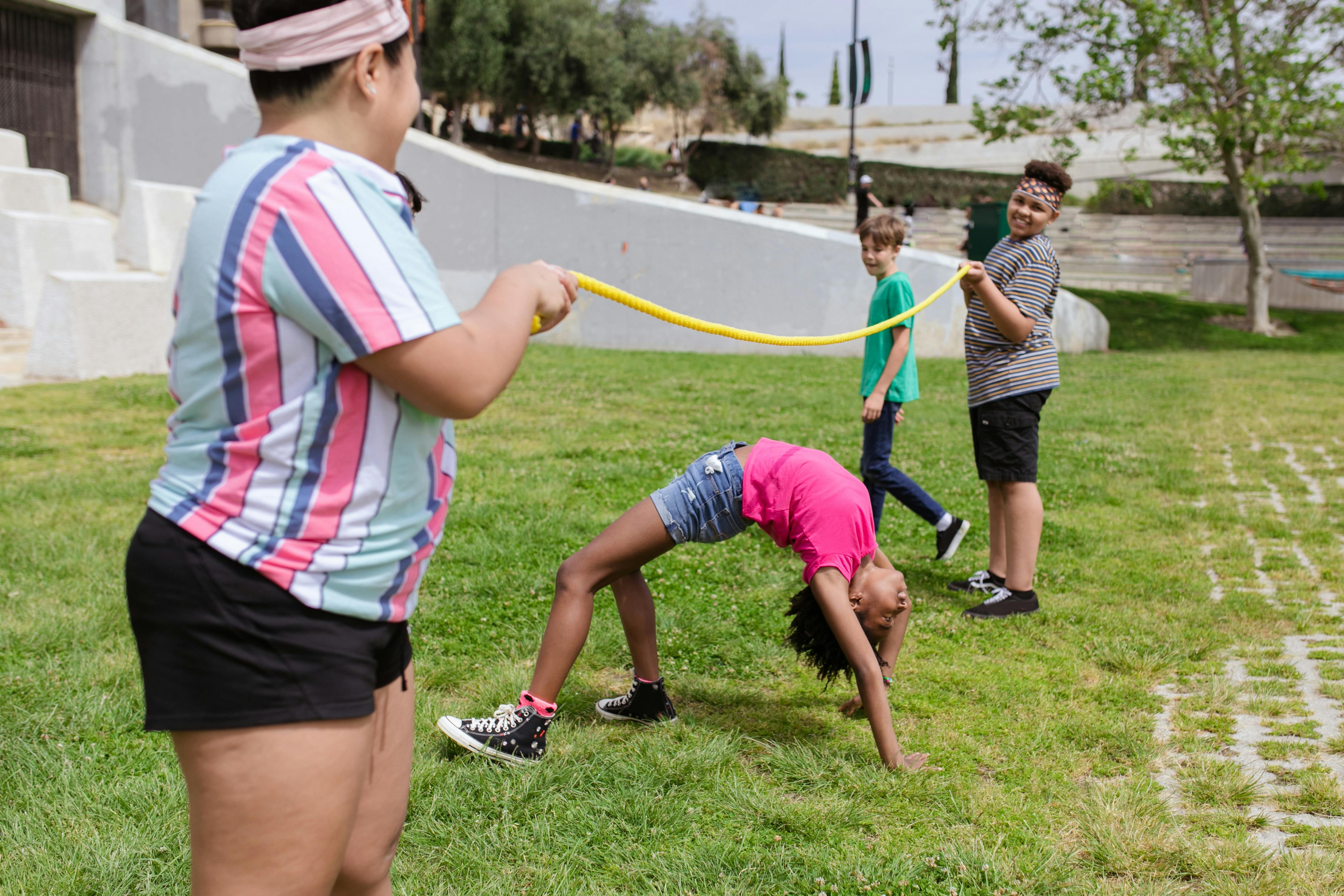Sunday, December 7, 2025
How to Design Kid-Friendly Bedroom Layouts That Grow with Your Child

Did you know that your child's bedroom will typically need revamping about 3 times during their childhood?
That's quite a lot—and these makeovers don't come cheap either. Recent research shows parents are spending around £2,000 on their dream bedroom designs, with one in 10 even willing to spend over £5,000 to create the perfect space.
But here's the thing: smart, adaptable design means you won't have to constantly refit or redecorate as your child moves through different stages. Your child's bedroom undergoes a significant transformation between the early years and teen years. From a nursery with a feeding chair for baby cuddles to a multifunctional space for a young teen starting at age twelve, each phase requires thoughtful consideration.
That's exactly why kid-friendly bedroom layouts need to be versatile and forward-thinking. The first five years, especially the first three, are extremely important to your child's development—but their needs will change dramatically as they grow. With careful planning, you can create kid bedroom design schemes that evolve seamlessly through each stage, saving you time, money and effort.
We'll walk you through practical kid bedroom layout ideas for every age group—from infants to teenagers—helping you design spaces that not only look fantastic but also support your child's changing needs as they grow.
Designing for Infants and Toddlers
Your layout decisions for infants and toddlers will affect both their development and your sanity. The key is creating a space that meets their current needs while accommodating future growth.Create a calming sleep space
The ideal nursery provides a serene environment that encourages rest. Opt for soft, muted tones rather than bright colours to create a soothing backdrop. Neutral colour schemes work particularly well as they minimise visual stimulation, helping both you and baby feel calm.
Install a dimmer switch on your main light alongside a small lamp for gentle illumination during night feeds. Blackout blinds or lined curtains are essential for daytime naps and early bedtimes. Don't forget to maintain the room temperature between 16–20°C, as this is the recommended range for babies.

Image credit: Bedstar
Use convertible furniture for future use
Smart furniture choices save both money and space long-term. A convertible cot that transforms into a toddler bed can serve your child from infancy until approximately age four. Similarly, consider a dresser that doubles as a changing table by adding a changing topper—you'll get functionality now and storage later.
Quality two-piece sets with a convertible cot-to-toddler bed and matching dresser provide both immediate functionality and future practicality. Look for nursery furniture sets that offer both style and longevity.
Ensure safety with layout and storage
Position the cot away from radiators, windows and potential climbing opportunities. All furniture should be securely anchored to prevent toppling as your toddler begins to pull themselves up.
Fit safety catches to cupboard doors and drawers containing dangerous items. Choose furniture with soft-close mechanisms to prevent trapped fingers. Ensure all decorative items are placed well out of reach, avoiding hanging decor near sleeping areas.
Keep play areas outside the bedroom
Why mix sleep and play zones? Creating separate areas for sleep and play helps establish healthy sleep associations. When play elements remain in the bedroom, they can overstimulate and distract from rest. A dedicated play area in your living room or another room helps your child associate their bedroom primarily with sleep and relaxation.
For infants and young toddlers especially, this separation creates a clear distinction between playtime and bedtime, promoting better sleep habits.
Adapting the Room for Pre-schoolers
Your child's growing independence at preschool age brings exciting changes to their bedroom needs. This stage is all about supporting their newfound self-sufficiency whilst encouraging exploration and imaginative play.Introduce toy storage and open shelves
Storage solutions become your best friend when maintaining a tidy, structured learning environment. Accessible shelving units enable your preschooler to retrieve and store their materials independently, fostering organisational skills and responsibility. Open shelves make colourful toys visible and accessible, creating a brighter, more stimulating atmosphere instead of hiding everything away in cupboards.
Here are some practical options worth considering:
- Wooden framed storage units with lightweight plastic boxes in bright colours
- Low bookcases with labelled compartments for different toy categories
- Mobile storage solutions that offer flexibility in room layouts
These storage solutions don't just keep the room organised—they actually become learning tools that teach discipline as children put books, toys, and resources back into their respective homes.
Use low beds and accessible furniture
Low sleeper beds represent the perfect transition from toddler beds for children aged 4 and up. They support your preschooler's independence by allowing them to safely and easily get in and out of bed by themselves. This accessibility promotes positive bedtime routines and helps establish confidence.
Child-sized furniture is equally important. Choose tables and chairs proportionate to their small stature, allowing their feet to touch the ground and arms to rest comfortably on surfaces without hunching over. This ergonomic support encourages focus during activities and proper posture development.
Add creative zones for drawing and play
Dedicated areas for creative expression are essential for your preschooler's development. Set up a small table and chair set specifically for arts and crafts, writing, and puzzles. This becomes a hub where your preschooler can learn to hold a pencil, complete jigsaws, and explore creative materials.

Image credit: Bedstar
Consider adding decorative shelves for displaying favourite small toys, little plants, and creative works. These personalised touches help children develop pride in their space whilst keeping special items safely displayed rather than scattered about.
Creating these distinct zones within the bedroom helps your preschooler understand spatial organisation and activity transitions—skills that will serve them well as they continue to grow.
Layout Ideas for School-Age Children
School-age children need bedroom layouts that support their growing academic needs and expanding interests. Their room must evolve from a simple play space into a multifunctional environment that works just as hard as they do.
Create study-friendly zones that actually work
Position a desk near natural light sources to improve concentration and reduce eye strain. A dedicated study station with enough space to spread out books, tablets and art materials creates an environment that encourages learning. A well-designed study area helps establish good homework habits that will benefit them throughout their education. Consider adding a curtain that can be drawn to close off this space when focus is needed.

Image credit: Bedstar
Choose modular storage for books and toys
- Flexible storage solutions are essential for this age group's changing needs
- Modular units with adjustable shelves that can be reconfigured as collections grow
- Open shelves for displaying favourite books and current interests
- Labelled bins and baskets for smaller items and categorised collections
These systems help children learn organisational skills whilst keeping their expanding possessions tidy.
Let your kids personalise their space
Getting children involved in design decisions gives them a sense of ownership. Provide opportunities for self-expression through pegboards, magnetic paint areas or display shelves where they can showcase their creations. Children who feel their space reflects their personality are more likely to respect and maintain it.
Teen Bedroom Layouts That Encourage Independence
The teenage years mark a crucial shift in bedroom design needs, as adolescents seek spaces that reflect their emerging identity. Part of growing up involves wanting more independence, and a well-designed bedroom can function almost like a separate home within your house.
Add a desk for homework and hobbies
Have you noticed how much time your teenager spends on schoolwork? They face intense academic pressure, making a quality desk and supportive chair essential. Position the desk near natural light sources to reduce eye strain.
Consider a built-in design or corner desk to maximise floor space in smaller rooms. Smart desks with USB charging points and Bluetooth speakers can help teens stay organised and connected.
Upgrade to a larger bed if space allows
Does your teen still sleep in a single bed? Consider upgrading to a small double. This provides more room for stretching out and creates a comfortable space for relaxation. Storage beds with ottoman or drawer designs offer hidden storage whilst maintaining a stylish look—ideal for keeping clutter under control.
 Image credit Bedstar: Quest White Wooden Bed (3 Drawer). Price £339
Image credit Bedstar: Quest White Wooden Bed (3 Drawer). Price £339Balance privacy with family connection
Teenagers naturally crave private space where they can reflect and develop autonomy. But maintaining open communication remains vital. Rather than imposing strict rules, discuss personal boundaries together and find compromises that respect both their need for privacy and your responsibilities as parents.
Minimise clutter with smart storage
Closed wall storage works perfectly for school materials. Consider these options:
- Floor-to-ceiling wardrobes for clothing and possessions
- Under-bed storage for seasonal items
- Decorative lockable boxes for private belongings
Creating adaptable bedroom layouts for your children is one of the smartest moves you can make as a parent. From nursery to teen retreat, thoughtful design choices will save you thousands of pounds while creating spaces that genuinely support your child's development at every stage.
What's the secret? Flexibility should guide all your design decisions. Convertible furniture, adjustable storage solutions, and multipurpose zones allow the space to evolve naturally without requiring complete overhauls. Each developmental stage brings unique requirements that deserve careful consideration, from the calming environment babies need to the privacy teenagers crave.
Safety considerations remain paramount for younger children, while opportunities for self-expression become increasingly important as they grow. The perfect children's bedroom balances immediate needs with future possibilities, creating a foundation that adapts rather than requires replacement.
Don't forget that your child's bedroom serves as more than just a place to sleep. It functions as their personal sanctuary, learning environment, and creative space. When you implement the age-appropriate strategies we've outlined, you create a room that truly grows alongside your child - supporting their changing needs while reflecting their emerging personality.
Your child's space should evolve with them, not against them. And with the right planning, it absolutely can.
Key Takeaways
Smart bedroom design can save you thousands whilst creating spaces that truly support your child's development at every stage.• Invest in convertible furniture - Cots that transform into toddler beds and adjustable storage save money whilst adapting to changing needs.
• Create distinct zones for different activities - Separate sleep, study, and play areas help children develop healthy routines and organisational skills.
• Prioritise safety early, independence later - Secure furniture and childproof storage for toddlers, then gradually introduce accessible, child-sized furniture as they grow.
• Plan for evolving storage needs - Modular systems with adjustable shelves accommodate everything from toys to textbooks as collections expand.
• Balance structure with personalisation - Provide frameworks for organisation whilst allowing children to express their personality through displays and décor choices.
The most successful children's bedrooms function as adaptable sanctuaries that grow alongside your child, supporting their development from infancy through adolescence without requiring complete redesigns.
Friday, November 28, 2025
What Does “Borrowing Responsibly” Really Mean?
You know that sinking feeling when an unexpected bill shows up, and you wonder how to stretch what’s left till payday? You have to choose between paying it now, putting it off, or finding a way to borrow just to stay afloat. Too often, people take the quickest route rather than looking for the best ethical direct lenders.
You’re not alone. Over 4.1 million people in the UK are currently struggling with problems related to debt, and more than 3 million people in Britain may have borrowed from illegal or unlicensed lenders.
That’s a shocking reminder that financial pressure is far more common than most people admit, and in those situations, that pressure pushes many into risky choices.
Let’s Break Down What Borrowing Responsibly Really Means
- You check the added costs and the total payable amount
- You realise what your monthly payment will do to your budget
- You have a fallback plan if income drops for a month or two
Five Tips for Borrowing Responsibly
1. Know Exactly What You’re Signing Up For
- The total amount you’ll pay back
- Any fees for missed or early payments
- How long does the loan run for
- Whether the lender will charge you additional fees
2. Check All The Costs Involved
- The processing fees
- Types of interest
- Late charges if you miss a payment
- Early repayment charges
3. Have A Realistic Budget
- First, list your essentials. Write down the things you must pay every month, like the rent or mortgage, food, electricity and water, phone, internet, medicine, and transport. These are non-negotiable.
- Second, consider a bad month when you earn less or have an extra expense. Ask yourself, can you pay the instalment and still cover your basic need
4. Use Borrowers' Tools To Rebuild Credit
- Pick a credit-builder product with clear, affordable terms and make every payment on time
- Put your name on the electoral roll if it isn’t already there, as it helps lenders confirm who you are
- Pay essential bills (rent, utilities, phone) on time and keep proof of payment
- Keep borrowing small and steady, as regular payments made on time can gradually raise your score
5. Compare and Stay Sceptical
- Look for a comparison website and gather a few loan options
- Find direct-lender lists to save time when you are stressed
- Check if the loans are flexible if things go wron
- Be aware of the cancellation and communication options that they offer
- Always read the lender’s terms and the amount payable before you sign
How to Spot Fair Lenders and Avoid The Rest
In Conclusion
Friday, October 3, 2025
Exam season can be stressful, not just for students but for parents too. While children face the pressure of performing well, parents often wonder how best to support them without adding extra stress. The good news is that with the right balance of encouragement, structure, and care, you can help your child feel confident and prepared for their exams. Read on for some advice from a sixth form college in London.
Understanding the Role of Parents
Supporting your child through exam revision doesn’t mean doing the work for them. Instead, it’s about creating the right environment, encouraging healthy habits, and helping them manage their time and emotions. With a thoughtful approach, you can reduce pressure and make revision more effective.
Practical Ways to Support Your Child
1. Help Them Create a Realistic Revision Plan
Work with your child to break down their subjects into manageable chunks. A timetable that balances study with rest helps avoid cramming and burnout. Encourage them to set specific goals, such as revising one topic at a time, instead of vague aims like “study maths.”
2. Provide a Positive Study Environment
A quiet, organised, and distraction-free space can make all the difference. Make sure your child has everything they need—stationery, notes, and resources—so they can focus without unnecessary interruptions.
3. Encourage Regular Breaks
Research shows that short, focused bursts of revision are far more effective than long hours without rest. Suggest techniques like the “Pomodoro method” (25 minutes study, 5 minutes break) to help maintain focus and motivation.
4. Support Healthy Habits
Good nutrition, regular exercise, and enough sleep are just as important as revision. Encourage your child to eat balanced meals, take walks or play sport, and maintain a consistent bedtime routine. A healthy body supports a healthy mind.
5. Provide Encouragement, Not Pressure
Reassure your child that exams don’t define their worth. Praise their effort rather than only results, and remind them that it’s normal to feel nervous. A calm, positive attitude from you will help reduce their stress.
6. Use Different Revision Techniques
Not all children learn in the same way. Flashcards, mind maps, practice papers, and teaching material back to you can all be effective. Encourage your child to experiment and find the methods that work best for them.
Looking After Emotional Well-being
Exam pressure can affect mood and confidence. Be available to listen if your child wants to talk, and look out for signs of stress or anxiety. Sometimes, simply knowing they have your support can make a huge difference. If anxiety seems overwhelming, consider speaking to their school for additional support.
Supporting your child with exam revision is about balance—helping them stay organised and motivated while ensuring they also rest, eat well, and feel encouraged. Exams are a challenge, but with the right support, children can approach them with resilience and confidence. Remember, your calm reassurance and belief in them is one of the most powerful tools you can provide.
In an age where keyboards and touchscreens dominate daily life, handwriting may feel less essential than it once was. Yet, handwriting remains a fundamental skill for children, not only for academic success but also for supporting creativity, memory, and fine motor development. Many parents wonder how they can best support their child’s handwriting journey. The good news is that with patience, encouragement, and the right strategies, you can make a real difference. Read on for some guidance from an independent prep school in North London.
Why Handwriting Matters
Handwriting is more than putting pen to paper. It strengthens hand muscles, develops coordination, and builds the foundation for clear communication. Research also shows that writing things down helps with memory and learning, making handwriting an important skill in school and beyond.
Common Challenges Children Face
Some children take naturally to handwriting, while others may struggle. Common difficulties include:
· Grip and posture issues – holding a pencil too tightly or slouching.
· Letter formation – inconsistent size, spacing, or shape of letters.
· Speed and fluency – writing too slowly, or with difficulty keeping up in class.
· Confidence – children may become frustrated if they compare themselves to peers.
Understanding these challenges is the first step in offering meaningful support.
Practical Ways to Help at Home
1. Start with Fine Motor Skills
Activities such as playing with clay, threading beads, or using scissors help strengthen the small muscles in the hands and fingers. These skills are essential for good pencil control.
2. Focus on Pencil Grip and Posture
Show your child how to hold a pencil using the “tripod grip” (thumb, index, and middle finger). Ensure they sit comfortably at a table with feet flat on the floor and paper at a slight angle.
3. Make Practice Fun
Instead of worksheets alone, encourage playful writing. Try chalk on the pavement, painting letters with a brush, or tracing shapes in sand. Turning handwriting into a game makes it enjoyable rather than a chore.
4. Encourage Consistent Letter Formation
Guide your child to form letters from the top down and to follow the correct sequence of strokes. Using lined paper or handwriting books can help with sizing and spacing.
5. Celebrate Progress
Praise effort as much as results. A simple “Well done, your letters are much clearer today!” can boost confidence and motivation.
6. Set Realistic Goals
Short, regular practice sessions are far more effective than long, tiring exercises. Aim for 5–10 minutes a few times a week, building up gradually.
When to Seek Extra Support
If handwriting difficulties persist or significantly affect schoolwork, it may be worth speaking with your child’s teacher. Some children benefit from additional support, such as occupational therapy or specific handwriting programmes. Early intervention can prevent frustration and boost confidence.
Helping your child with handwriting is about encouragement, patience, and practice. By making it fun and supporting them with the right tools and techniques, you can give your child confidence in this lifelong skill. Remember: every child progresses at their own pace, and celebrating small successes makes all the difference.
School holidays bring a welcome break for children, but for parents, they can sometimes present a challenge. How do you keep your child engaged, active, and happy during weeks away from the classroom? One option many families turn to is a holiday camp. But is it the right choice for your child? Let’s explore the benefits and considerations.
What is a Holiday Camp?
Holiday camps are structured programmes designed for children during school breaks. They can range from day camps running locally to residential camps where children stay for several days or weeks. Activities often include sports, arts and crafts, drama, outdoor adventures, and team-building games, ensuring plenty of variety.
Benefits of Holiday Camps
1. Keeping Children Active and Engaged
Holiday camps provide a balance of fun and learning. Instead of long hours spent on screens, children enjoy active days filled with creative and physical challenges. This helps them maintain healthy routines even outside school.
2. Building Social Skills and Friendships
Camps bring together children from different schools and backgrounds, giving them the chance to meet new friends. Through teamwork and shared activities, they develop communication skills, empathy, and confidence in social settings.
3. Encouraging Independence
For many children, a camp experience, especially a residential one, may be the first time they spend extended time away from home. This nurtures independence, problem-solving, and resilience, as children learn to adapt to new environments and routines.
4. Exploring New Interests
Holiday camps often offer activities children might not encounter at school, such as archery, drama workshops, or coding clubs. These opportunities can spark new passions and broaden horizons.
5. Peace of Mind for Parents
Knowing your child is safe, supervised, and having fun brings huge reassurance. For working parents in particular, holiday camps provide reliable childcare during long school breaks, helping to ease the pressure.
Things to Consider Before Choosing a Camp
· Age Appropriateness: Make sure the camp is tailored to your child’s age group.
· Interests: Look for programmes that match your child’s hobbies or introduce them to new ones.
· Safety and Staff: Check the staff-to-child ratio, qualifications, and safeguarding policies.
· Duration and Location: Consider whether a day camp or residential camp is more suitable, and how far you’re willing to travel.
· Cost: Prices can vary, so compare options and look out for early booking discounts or financial support schemes.
Is a Holiday Camp Right for Your Child?
If your child enjoys trying new things, meeting people, and being active, a holiday camp can be a fantastic experience. It provides structure, fun, and opportunities for personal growth. However, if your child is shy or nervous about new environments, it may be helpful to start with a shorter day camp before considering longer residential options.
Holiday camps are more than just childcare, they’re opportunities for growth, independence, and lasting memories. By choosing the right camp, you can give your child an experience that enriches their holiday while giving you peace of mind. For many families, it’s an investment in both fun and development that’s well worth considering.
When parents choose a private school for their child, they often think of high academic standards, excellent facilities, and small class sizes. But beyond academics, one of the most important aspects of a child’s school experience is pastoral care, the support and guidance that ensures children feel safe, valued, and able to thrive. In private schools, pastoral care is often a central focus, shaping not just a child’s education but also their overall well-being.
What Does Pastoral Care Mean?
Pastoral care refers to the systems, people, and practices that support students’ personal development, emotional health, and social growth. It goes beyond classroom teaching, focusing on the child as a whole individual. At its heart, pastoral care is about ensuring that every child feels nurtured, understood, and supported throughout their school journey.
Key Elements of Pastoral Care at Private Schools
1. A Strong Support Network
Private schools usually have dedicated staff responsible for pastoral care, such as form tutors, heads of year, or pastoral leads. These trusted adults build close relationships with students, acting as a first point of contact if a child is struggling academically, emotionally, or socially. Smaller class sizes also allow teachers to know each child personally.
2. Focus on Well-Being and Mental Health
Private schools often embed well-being initiatives into daily life. This might include mindfulness sessions, resilience workshops, or access to trained counsellors. Children are taught how to manage stress, handle challenges, and look after their mental health, a vital foundation for lifelong success.
3. Character Development and Values
Pastoral care is not just about responding to problems, it’s also about proactively nurturing character. Private schools tend to place a strong emphasis on values such as respect, kindness, leadership, and responsibility. Through assemblies, mentoring, and co-curricular activities, students develop the moral and social compass needed to navigate life.
4. Safe and Inclusive Environments
Creating a safe space is central to pastoral care. Private schools often have robust anti-bullying policies and initiatives that promote inclusivity. Diversity is celebrated, and
pupils are encouraged to show empathy and acceptance towards others, helping them feel part of a supportive community.
5. Parental Partnership
Strong communication between schools and families is a hallmark of pastoral care in private education. Parents are kept informed not only about academic progress but also about their child’s overall development. This partnership ensures that children receive consistent support both at home and at school.
6. Opportunities Beyond the Classroom
Extracurricular activities, from sports and music to debating and volunteering, are a vital part of pastoral care. They allow children to build confidence, explore passions, and form friendships. These experiences enrich school life and support social and emotional growth.
Why Pastoral Care Matters
Pastoral care shapes how children feel about themselves and about learning. When students feel supported, safe, and understood, they are more confident, engaged, and resilient. In private schools, the commitment to pastoral care ensures that children are not only prepared academically but also equipped with the emotional and social tools they need to flourish in life.
At private schools, pastoral care is woven into the very fabric of education. It’s about creating an environment where children are cared for as individuals, where their strengths are nurtured, and where they are given the tools to meet life’s challenges with confidence. For parents, knowing that their child will be supported in this way provides peace of mind, and for students, it makes school a place where they can truly thrive.
As children grow, they learn not just through formal education but also through the experiences and activities that spark their curiosity. Hobbies, whether drawing, playing sports, building with blocks, gardening, or even collecting things, play a vital role in shaping a child’s development. They’re not just pastimes; they are building blocks for life skills, creativity, and confidence. We’ve teamed up with a private school in West Sussex to explore why hobbies are important for children below.
1. Encouraging Creativity and Imagination
Hobbies give children the freedom to explore ideas without the pressures of right or wrong answers. Whether it’s painting a picture, inventing a new game, or playing an instrument, hobbies allow kids to express themselves and think outside the box. This kind of creative play fuels imagination, which later supports problem-solving skills and innovation.
2. Building Confidence and Self-Esteem
When children engage in activities they enjoy, they often see progress over time. Learning to play a song on the piano or scoring a goal in football can feel like big victories. These achievements, however small, help build self-confidence and a sense of accomplishment, teaching them that practice and perseverance lead to success.
3. Developing Patience and Resilience
Many hobbies, such as learning to knit, coding, or practicing a sport, require patience and repeated effort. Children quickly learn that not everything comes easily, and mistakes are part of the process. This resilience is an invaluable life skill that helps them face challenges in school and beyond.
4. Improving Focus and Discipline
When kids dedicate time to a hobby, they learn about routine, focus, and commitment. Regular practice in something they love translates into discipline that can positively influence their studies and other areas of life. It teaches them to manage their time and prioritise tasks, a habit that becomes crucial as they grow older.
5. Enhancing Social Skills
Many hobbies naturally bring children together. Team sports, dance classes, drama clubs, or even chess groups provide opportunities to build friendships, practice teamwork, and develop communication skills. Shared hobbies also give children a sense of belonging and community.
6. Promoting Mental Well-Being
Hobbies can act as an outlet for stress and anxiety, even for children. Activities such as reading, drawing, or playing music provide relaxation and joy, supporting their emotional well-being. Having a hobby also helps children feel grounded, giving them a healthy balance between schoolwork and downtime.
7. Discovering Talents and Passions
Exploring different hobbies allows children to discover what excites them most. These early passions may eventually shape their career paths or lifelong interests. More importantly, hobbies teach them curiosity, the willingness to try new things and embrace learning in everyday life.
Hobbies are far more than ways to pass the time; they are essential for a child’s holistic development. By encouraging children to explore different activities, parents and caregivers are giving them the tools to become creative, confident, resilient, and well-rounded individuals. Whether it’s art, sport, music, or something completely unique, hobbies are gifts that children carry with them for life.









Social Media
Search